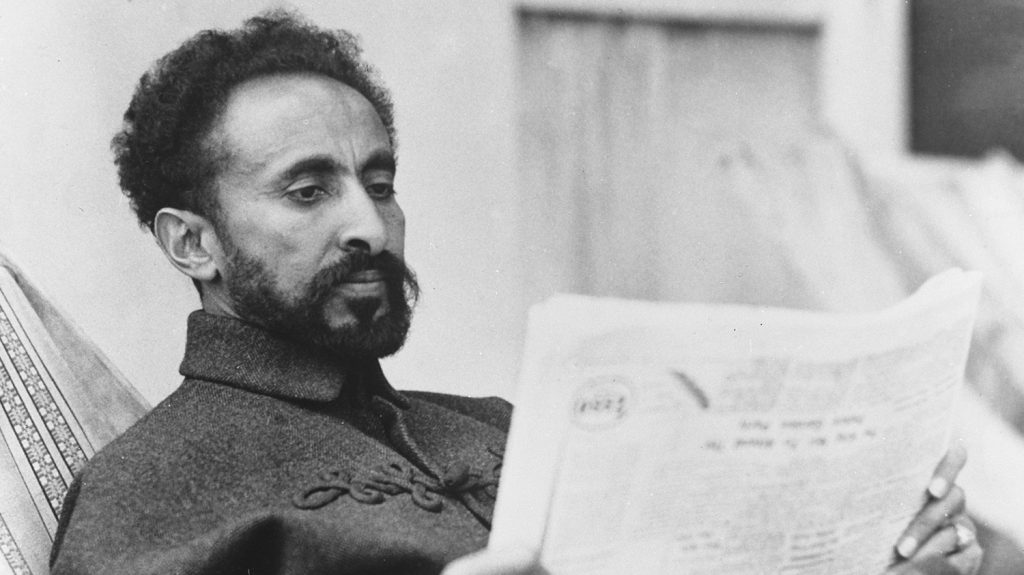Haile Selassie, future Emperor of Ethiopia (above), was born today in 1892. He was named Tafari, which means ‘he who inspires awe’, and when he was crowned in 1917, he became known as Ras Tafari, which translates as ‘Prince Tafari’. An Ethiopian Orthodox Christian, he claimed to be a direct descendant of King Solomon and the Queen of Sheba.
It is the feast of St Birgitta of Sweden, who died today in 1373. Birgitta founded an order of nuns in Sweden in the 14th century, but spent a lot of her time in Rome, where she offered blunt advice to popes. She was also a mystic, and dictated a book of Revelations, which was widely read, but also argued over, as its orthodoxy was questioned. She is said to be the author of the Fifteen O’s, a sequence of devotional prayers, each of which starts with the cry, ’O Jesus!’
‘It is a terrible thing that the Lord of all things and the King of glory is despised. He was like a pilgrim on earth, wandering from place to place, knocking on many doors, like a wayfarer seeking welcome.’ Birgitta of Sweden
On this day in 596, Pope Gregory I wrote a letter to the 40 Roman monks he had sent as missionaries to pagan Britain. They had left Rome and got as far as Provence, but had written to the Pope saying they’d had second thoughts about going to such a God-forsaken backwater. Could they come home to Rome? The basic gist of Gregory’s reply was ‘no’. He appointed Augustine (later known as Augustine of Canterbury) to be their abbot.
Susanna Wesley, the mother of John and Charles (the leaders of the Methodist revival in the 18th century), died today in 1742. She had 19 children in all, but 11 of them had died before her. John Wesley described the scene in his Journal. ‘Then, without any struggle, or sigh, the soul was set at liberty. We stood round the bed, and fulfilled her last request: “Children, as soon as I am released, sing psalms of praise to God.”’
John Cassian, the early monk and mystic, has his feast day today in the Western Church. He was a monk first in Bethlehem, then in Scete (a desert in Egypt), and finally in Marseilles. His spiritual writings have had a deep and wide influence, shaping the thought and practice of Benedict of Nursia and Ignatius of Loyola in the West, as well as being included in the Eastern Orthodox compendium of writings, the Philokalia.
Image: Nationaal Archief
